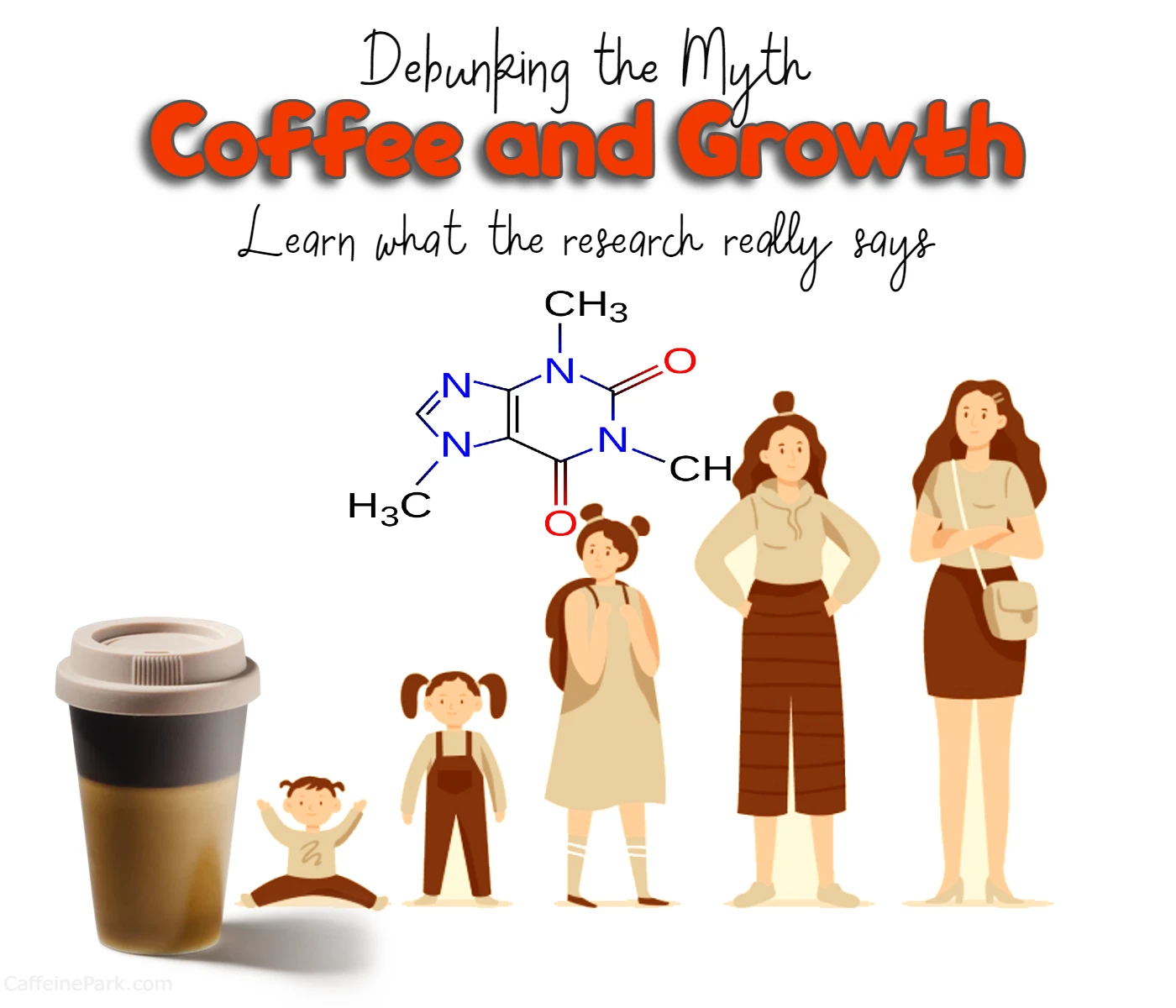Does Caffeine Dehydrate You?

Caffeine is a stimulant that is found in many beverages, such as coffee, tea, and soda, as well as in some medications. Some studies have suggested that caffeine may have a diuretic effect, which means that it can increase the amount of urine that a person produces. This can lead to dehydration if a person does not drink enough fluids to compensate for the extra urine production. However, other studies have found that moderate caffeine intake does not have a significant impact on hydration levels. To be safe, it is best to consume caffeine in moderation and to drink plenty of water throughout the day to stay hydrated.
Does Caffeine Cause Dehydration?
There is some evidence to suggest that caffeine may have a mild diuretic effect, which means that it can increase urine production and lead to a temporary increase in urine output. This could potentially lead to a loss of fluid from the body, and therefore to a state of dehydration.
However, the diuretic effect of caffeine is relatively weak and is unlikely to cause significant dehydration in most people, especially when consumed in moderation. In fact, many studies have found that caffeine does not have a significant effect on hydration status or on markers of fluid balance, such as blood electrolyte levels, in healthy adults.
For example, a study published in the American Journal of Physiology-Regulatory, Integrative and Comparative Physiology found that caffeine consumption did not affect hydration status in healthy young men who consumed it in moderate amounts (equivalent to 2-3 cups of coffee per day).
Another study, published in the Journal of the International Society of Sports Nutrition, found that caffeine consumption did not affect fluid balance or hydration status in endurance athletes who consumed it in moderate amounts (equivalent to 3-6 mg/kg body weight) during exercise.
Factors That May Affect the Dehydrating Effect of Caffeine
While caffeine is not likely to cause significant dehydration in most people, there are several factors that may affect its potential diuretic effect, including the following:
- Dose: The diuretic effect of caffeine is generally dose-dependent, meaning that it increases as the amount of caffeine consumed increases. Consuming large amounts of caffeine, particularly in the form of energy drinks or supplements, may increase the risk of dehydration.
- Individual differences: Some people may be more sensitive to the diuretic effect of caffeine than others. This may be due to differences in caffeine metabolism or other factors.
- Dehydration status: Caffeine may have a more pronounced diuretic effect in people who are already dehydrated.
How to Manage Caffeine Intake to Minimize Dehydration Risk
If you are concerned about the potential dehydrating effect of caffeine, there are several things you can do to minimize your risk of dehydration:
- Drink plenty of water: Make sure to drink plenty of water throughout the day, especially if you are consuming caffeine. This will help to replenish any fluids that you may lose due to caffeine’s diuretic effect.
- Limit caffeine intake: Try to consume caffeine in moderation, particularly if you are sensitive to its effects. The recommended daily limit for caffeine is 400 mg per day for most adults, which is equivalent to about 4 cups of coffee.
- Avoid caffeine-containing energy drinks: Energy drinks are often high in caffeine and other stimulants, and may increase the risk of dehydration. It is best to avoid them or consume them in moderation.
- Stay hydrated during exercise: If you are exercising and consuming caffeine, make sure to drink enough water to stay hydrated. Caffeine may increase urine production and fluid loss during exercise, so it is important to drink enough water to compensate for this.
- Choose caffeine-free alternatives: If you are concerned about the potential dehydrating effect of caffeine, consider choosing caffeine-free alternatives to caffeinated beverages, such as herbal tea or decaffeinated coffee.
Other Potential Effects of Caffeine on Hydration
In addition to its potential diuretic effect, caffeine may also have other effects on hydration and fluid balance. For example, caffeine may increase the secretion of a hormone called vasopressin, which helps to regulate fluid balance in the body.
High levels of vasopressin can cause the body to retain more water, which could potentially lead to a state of overhydration. However, this effect is not well understood and more research is needed to confirm whether caffeine consumption can affect vasopressin levels in humans.
Caffeine and Sports Performance
Caffeine is often used by athletes and active individuals as a performance-enhancing substance. It is believed to improve physical performance by increasing alertness, focus, and endurance.
However, the potential effects of caffeine on hydration and fluid balance may be of concern to some athletes, especially those participating in endurance sports or activities that require prolonged periods of physical activity in hot or humid conditions.
While caffeine is not likely to cause significant dehydration in most people, it may increase urine production and fluid loss during exercise, particularly at high doses. This could potentially lead to a state of dehydration, which could affect performance and increase the risk of heat-related illness.
It is therefore important for athletes and active individuals to pay attention to their hydration status and to drink enough water to compensate for any fluids lost due to caffeine consumption or physical activity.
Caffeine and Hydration in Children and Adolescents
Caffeine consumption is not recommended for children and adolescents, as their bodies are still developing and may be more sensitive to the effects of caffeine. In addition, caffeine consumption may interfere with sleep and disrupt normal sleep patterns in children and adolescents.
There is also some evidence to suggest that caffeine may have a stronger diuretic effect in children and adolescents compared to adults. A study published in the Journal of the American Dietetic Association found that caffeine consumption increased urine output and decreased hydration status in adolescents who consumed it in moderate amounts (equivalent to 2 cups of coffee per day).
It is therefore important for parents to be aware of the potential dehydrating effect of caffeine on children and adolescents and to limit their caffeine intake as much as possible.
Caffeine and Dehydration in Older Adults
As we age, our bodies become less able to regulate fluid balance and we become more susceptible to dehydration. In addition, older adults may have a decreased thirst response, which can make it more difficult for them to recognize when they are dehydrated.
Caffeine may also have a stronger diuretic effect in older adults due to changes in caffeine metabolism and other age-related factors. A study published in the Journal of Gerontology found that caffeine consumption increased urine output and decreased hydration status in older adults who consumed it in moderate amounts (equivalent to 2 cups of coffee per day).
It is therefore important for older adults to be aware of the potential dehydrating effect of caffeine and to drink plenty of water to compensate for any fluids lost due to caffeine consumption.
Conclusion
Caffeine is a stimulant that is found in a variety of food and beverage products, including coffee, tea, soda, and chocolate. While some people believe that caffeine has a dehydrating effect on the body, the evidence suggests that this is not the case for most people.
Caffeine may have a mild diuretic effect, but this is generally not strong enough to cause significant dehydration in healthy adults who consume it in moderation. However, there are several factors that may affect the diuretic effect of caffeine, including the dose, individual differences, and dehydration status.
To minimize the potential dehydrating effect of caffeine, it is important to drink plenty of water, consume caffeine in moderation, and choose caffeine-free alternatives when possible. Athletes and active individuals should pay special attention to their hydration status, and parents should be aware of the potential effects of caffeine on children and adolescents. Older adults may be more sensitive to the diuretic effect of caffeine and should drink plenty of water to compensate for any fluids lost due to caffeine consumption.
FAQs about Caffeine Cause Dehydration
Can caffeine cause dehydration?
There is some evidence to suggest that caffeine may have a mild diuretic effect, which means that it can increase urine production and lead to a temporary increase in urine output. This could potentially lead to a loss of fluid from the body, and therefore to a state of dehydration.
However, the diuretic effect of caffeine is relatively weak and is unlikely to cause significant dehydration in most people, especially when consumed in moderation. In fact, many studies have found that caffeine does not have a significant effect on hydration status or on markers of fluid balance, such as blood electrolyte levels, in healthy adults.
How much caffeine can cause dehydration?
The diuretic effect of caffeine is generally dose-dependent, meaning that it increases as the amount of caffeine consumed increases. Consuming large amounts of caffeine, particularly in the form of energy drinks or supplements, may increase the risk of dehydration.
The recommended daily limit for caffeine is 400 mg per day for most adults, which is equivalent to about 4 cups of coffee. However, individual tolerance to caffeine can vary, and some people may be more sensitive to its effects than others.
Can caffeine cause overhydration?
There is some evidence to suggest that caffeine may increase the secretion of a hormone called vasopressin, which helps to regulate fluid balance in the body. High levels of vasopressin can cause the body to retain more water, which could potentially lead to a state of overhydration.
However, this effect is not well understood and more research is needed to confirm whether caffeine consumption can affect vasopressin levels in humans.
Can caffeine cause water retention?
Caffeine may have a mild diuretic effect, which means that it can increase urine production and lead to a temporary increase in urine output. This could potentially lead to a loss of fluid from the body, and therefore to a decrease in water retention.
However, caffeine may also affect other hormones that regulate fluid balance, such as vasopressin, which could potentially lead to an increase in water retention. More research is needed to understand the full range of effects and side effects that caffeine has on fluid balance and water retention.
How can I prevent dehydration caused by caffeine?
To minimize the potential dehydrating effect of caffeine, it is important to drink plenty of water, consume caffeine in moderation, and choose caffeine-free alternatives when possible. Athletes and active individuals should pay special attention to their hydration status, and parents should be aware of the potential effects of caffeine on children and adolescents. Older adults may be more sensitive to the diuretic effect of caffeine and should drink plenty of water to compensate for any fluids lost due to caffeine consumption.
Can caffeine cause electrolyte imbalance?
Caffeine has not been shown to cause electrolyte imbalances in healthy adults who consume it in moderation. However, consuming large amounts of caffeine, particularly in the form of energy drinks or supplements, may increase the risk of electrolyte imbalances due to the other ingredients present in these products.
Can caffeine cause kidney damage?
Caffeine consumption has not been shown to cause kidney damage in healthy adults who consume it in moderation. However, consuming large amounts of caffeine, particularly in the form of energy drinks or supplements, may increase the risk of kidney damage due to the other ingredients present in these products.
Read More:





